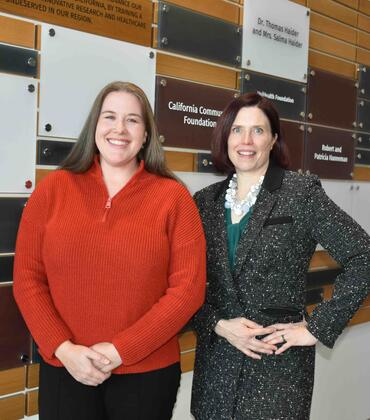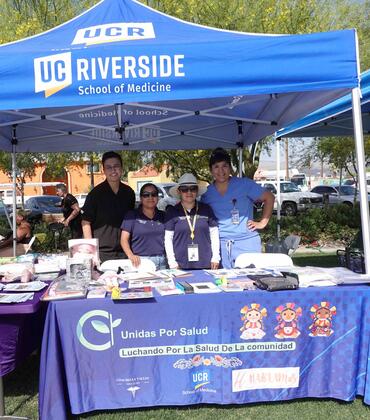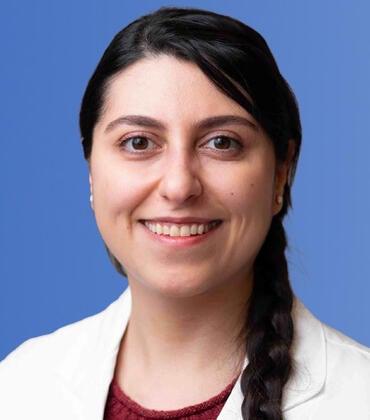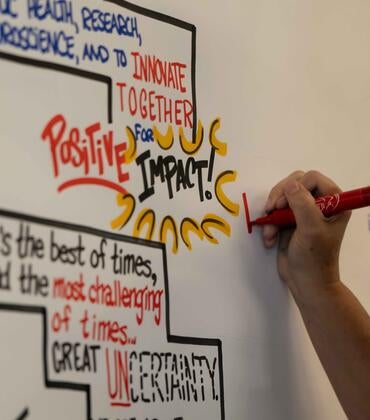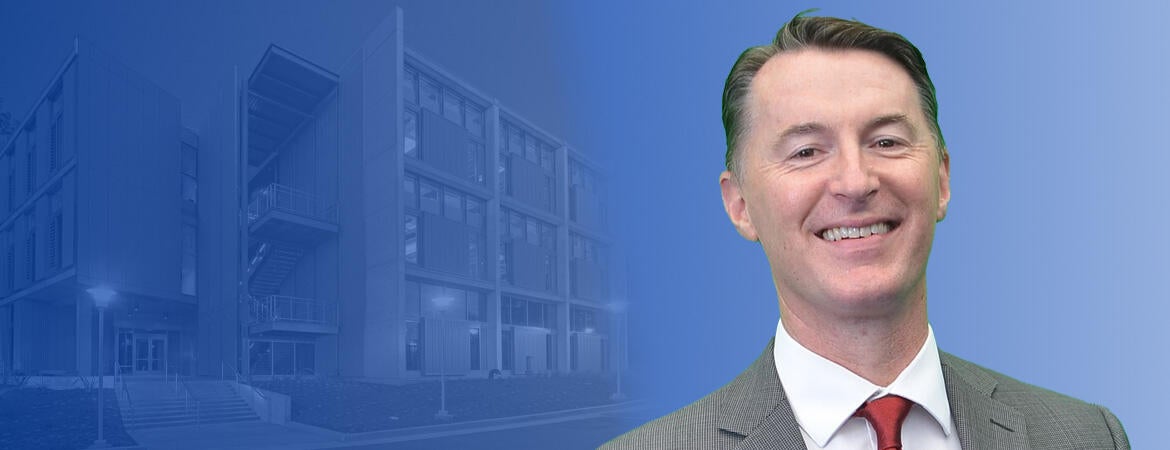
At a community presentation in San Diego several years ago, Declan McCole, PhD, a professor of Biomedical Sciences at the UC Riverside School of Medicine, recalled speaking to a patient about his work on inflammatory bowel disease (IBD) when the patient’s husband approached. “He had tears in his eyes, and he shook my hand and said, ‘Thank you so much for all that you're doing, you have no idea how much it means to know that people are working behind the scenes to try and find a cure for my wife's condition,’” McCole said. “That really resonated with me very strongly, so I've never forgotten that moment.”
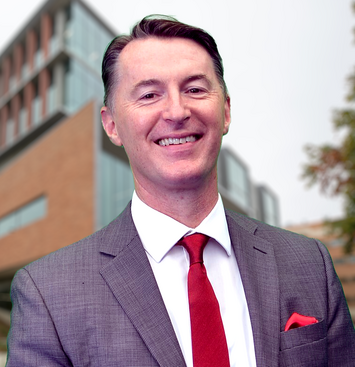
Other encounters over the years have also highlighted the SOM’s role in the community for McCole while keeping him focused on seeking treatments for patients through research. When McCole joined the SOM in 2013, people in town would thank him for coming. “I think within the community there's a great appreciation for the school,” McCole said. “When we face challenging moments in our research and experiments don't work, moments like that help keep us going,” he added. “The ultimate payoff is to try and help patients.”
Previously a researcher at UC San Diego, McCole became one of the first four faculty members recruited in advance of the opening of the UCR SOM in 2013. McCole, who grew up in the small fishing village of Burtonport in County Donegal in northwest Ireland, decided to come to UCR for the opportunity to help medically underserved communities like his hometown. “Growing up in that environment, I appreciated the value of medical access, and also saw the consequences of lack of access,” he explained. “Being able to get in on the ground floor with a new medical school that had the goal of really trying to transform health care and the provision of medical education in a neglected region was something that greatly appealed to me.”
Research that benefits patients
McCole’s research focuses on inflammatory bowel disease, which affects up to 3.1 million U.S. adults, and other conditions related to intestinal inflammation. Specifically, a main focus area of McCole’s lab involves investigating the impact of gene mutations on gene function, and in turn, the subsequent risk of developing conditions like Crohn’s disease, ulcerative colitis, and celiac disease. His team has also used their new understanding of gene mutations to work toward personalized treatments for patients. “I feel we have been able to make a significant advance in understanding how we can better use medications to preferentially target groups of patients based on their genetic risk,” McCole said.
He became involved with the Crohn's and Colitis Foundation while working at UCSD, which offered funding for his research along with chances to give community presentations at local chapter fundraising events and meet patients. “That really helped draw me in and keep me aligned with that community, because it was very rewarding to be able to interact with those patients and explain in terms they could understand the type of research that I was doing and where their donations were making a difference,” McCole said.
IBD may be a particular issue in the Inland Empire, where air quality and other environmental factors can trigger or contribute to medical conditions. Recognizing these concerns, McCole has also conducted research into the impact of agricultural air pollutants on intestinal health and function. His team observed that when rodents inhaled agricultural dust, it led to gut inflammation and the condition known as leaky gut. “This can predispose to a lot of chronic inflammatory diseases, so we're continuing studies on that area as well,” he said. “We have a lot of agriculture in central California… so it's an area of high interest for the Inland Empire.”
McCole has also collaborated on research with Meera G. Nair, associate dean for biomedical research and professor of biomedical sciences at UCR. “It was a true synergy between both our labs with our postdocs and PhD students working side by side to design experiments and generate data that spans both our research areas of immunology and gut physiology,” said Nair, who joined the SOM at the same time as McCole and views him as a close friend and collaborator. “He has a very calming influence and serves as a great sounding board when you have a problem you cannot resolve.”
Maintaining and expanding research
Proposed federal research funding cuts could affect UCR research and, as a result, community health. McCole pointed to potential impacts to university research infrastructure from the cuts, including reduced access to cutting edge research equipment, decreased funding to hire support staff, and loss of funding for support infrastructure that promotes lab safety and helps protect research from cybersecurity threats.
These losses may result in research projects needing to be downsized or terminated entirely, leading to an overall reduction in university research. In turn, McCole predicted that fewer research opportunities may lead to reduced local employment opportunities, researchers leaving the state or the country, and insufficient research opportunities and lab positions for students. “There are very obvious ways in which it will negatively impact the amount of research going on here and the quality of that research, but there are also more subtle ways in which it will reduce the benefit to the community,” McCole said.
Even with potential funding cuts and new challenges for research, McCole hopes to continue collaborating with researchers across campus at UCR to explore new areas. The goal is “to build a cross-disciplinary understanding of how diseases occur, so that we can generate greater insights into the origins of disease and importantly in developing treatments for disease,” he explained.
McCole has noticed substantial local support for cross-disciplinary research during his community presentations. At an SOM outreach event in Palm Desert in November, he recalled the audience being very engaged, with detailed questions for the researchers. “The interest and the goodwill of the community is there,” McCole said. “We just need to try and convince the powers that be that…[research] is one of the best investments that the government makes.”
He added that it’s important to train future researchers, both graduate and medical students. “I think it's really important that medical students get an appreciation of cutting edge research, because without research, there are no medical advances,” he said. Besides working with graduate students in his lab, he has also taught courses on grant writing and giving scientific presentations. “That has really helped these students to…develop their projects in a more detailed and thoughtful manner, and so that's very rewarding as well, to see them start to think like independent researchers, and give them the tools to succeed in their own careers.”
Celebrating Biomedical Sciences
With the Biomedical Sciences 50th anniversary taking place this year, McCole stressed the importance of recognizing those who helped build the department. “Great tribute goes to those early leaders in the Division of Biomedical Sciences and for all of those faculty who contributed to the teaching and research missions, that basically without them we would not have a School of Medicine here,” he said.
“It’s important to reflect on their accomplishments, to take stock of our successes, and also to use that to inspire us to future success as we go along,” McCole added. “Here’s to the next 50 years.”
